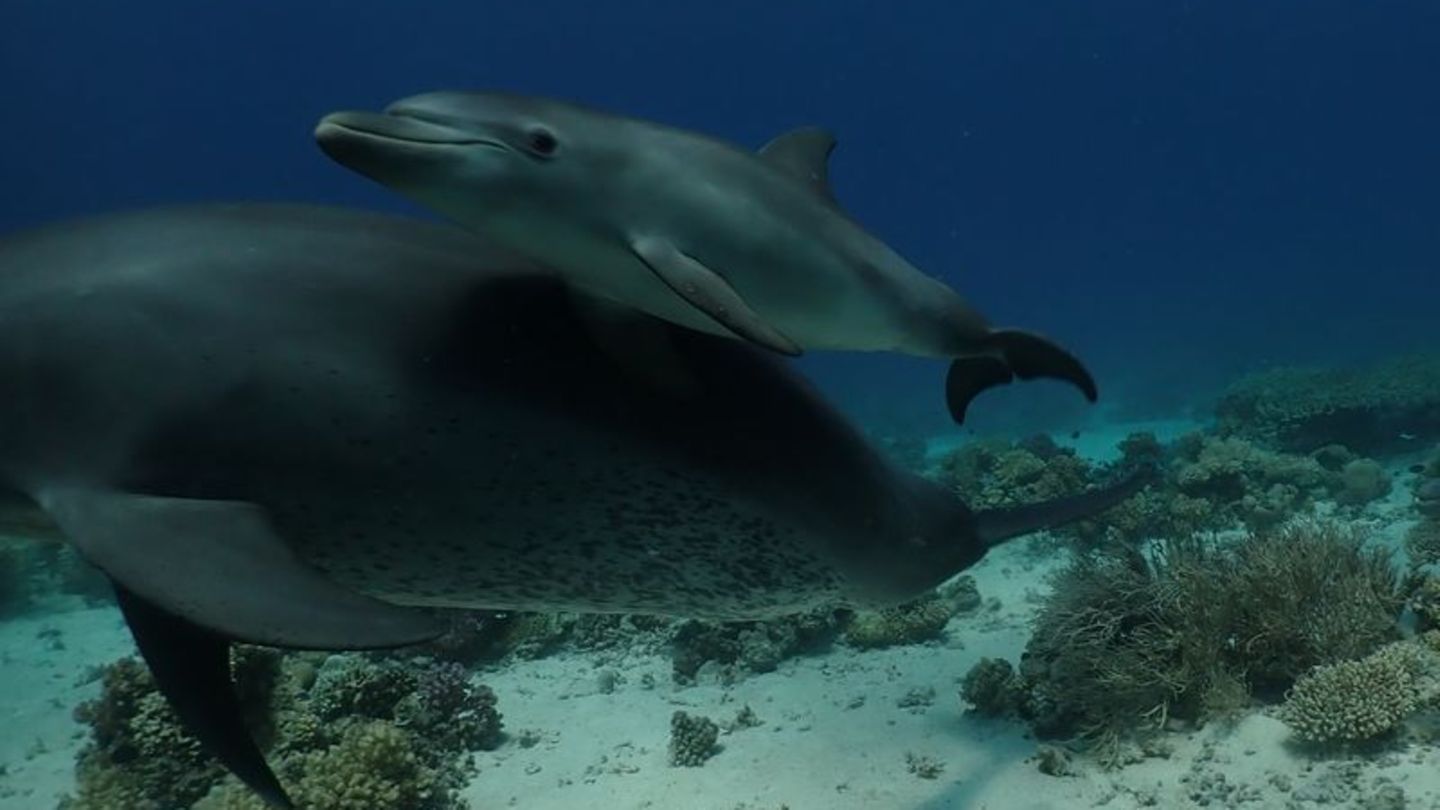Science
Study: Dolphins use coral for skin problems
The researchers observed that dolphins were rubbing and lining up against a selection of corals and sponges in the Red Sea off Egypt. Photo: Angela Zeltner/Dolphin Watch Alliance/DPA
© dpa-infocom GmbH
Researchers have noticed that dolphins rub themselves against coral reefs — and even queue for this self-treatment. Perhaps the secret lies in the mucus secreted by living organisms.
Some dolphins use corals and sponges to treat skin problems on their own. This is evidenced by the results of the study of an international research team published in the journal “iScience”.
Indo-Pacific dolphins (Tursiops aduncus) were observed in the Red Sea off the coast of Egypt scratching and queuing against a selection of corals and sponges. Scientists examined the target marine organisms and found 17 substances that have antimicrobial properties, among other things.
“The result surprised us and gambled with the hypothesis that dolphins use corals and sponges to provide the skin with beneficial substances in them prophylactically or in case of irritation,” explains Gertrude Morlock of the University of Giessen. She led the study with Angela Zeltner of the University of Zurich.
Miracle coral slime
Zeltner first saw the unusual behavior 13 years ago in bottlenose dolphins in the northern Red Sea. The wildlife biologist was able to keep a close eye on them while diving. “It took time to be able to dive with the dolphins in a way that made many interesting observations possible,” she says.
Eventually, those corals and sponges that marine mammals kept heading to could be identified. The team found that repeated rubbing caused small polyps that make up the coral community to shed mucus. To understand its properties, researchers took samples.
Analytical chemist and food scientist Morlock and her team examined these samples from gorgonian corals (Rumphella aggregata), leather corals (Sarcophyton sp.), and sponges (Ircinia sp.). They found 17 biologically active substances with antimicrobial, antioxidant, hormonal and toxic properties.
Invitation to further research
Their discovery led researchers to believe that mucus works to regulate the dolphin’s skin microbiome and treat or prevent infection. Morlock says one cannot prove a cure. But the conclusion is clear: “Friction with marine organisms rich in active ingredients and specially selected by dolphins, can make a difference because they have direct contact with the skin of the dolphins.”
Wildlife biologist Zeltner stresses that protecting marine mammals and their environment is very important to them. Many of the connections are not yet known. Therefore, further studies are necessary to “show and understand the interaction of different species”.

“Alcohol buff. Troublemaker. Introvert. Student. Social media lover. Web ninja. Bacon fan. Reader.”






More Stories
Ecologists Celebrate New Xesap National Park in Laos | Science
Is the wrong diet making you forget?
We can study it with a new telescope.